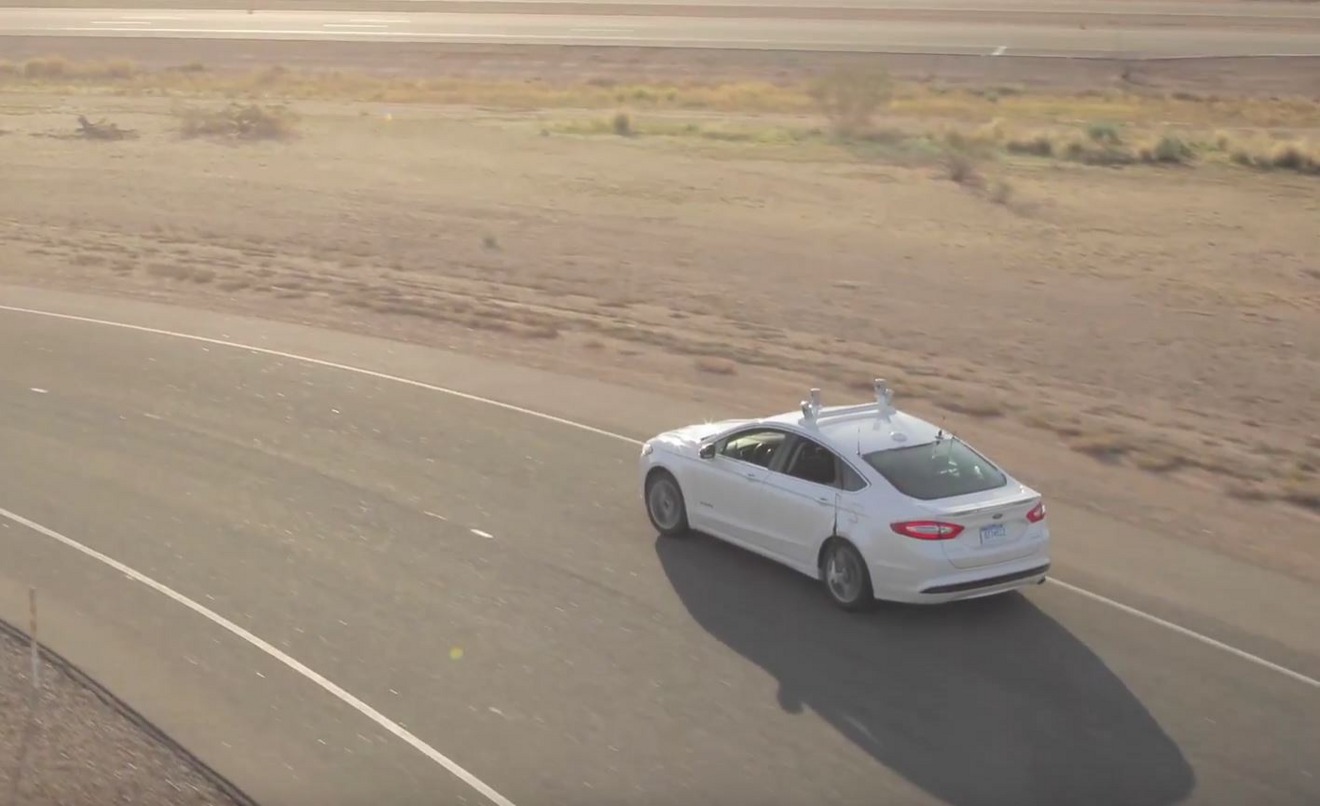Ford targeting 2021 launch for self-driving car, potentially going head to head with Apple
Last updated
At a special event on Tuesday, Ford revealed plans to have a fully self-driving car on the roads in 2021, the same year as Apple's own "Project Titan" is expected to debut.
The Ford vehicle will be built "specifically for ride sharing and ride hailing," Engadget quoted CEO Mark Fields as saying. The company will continue to offer a fleet of human-driven vehicles for sale — Fields nevertheless claimed that the change will be as important as the assembly line, and that Ford is "no longer just an auto company," but also a "mobility" business.
CTO Raj Nair noted that Ford is planning to skip the evolutionary approach favored by rivals like Tesla, which have adopted "driver assist" features as an intermediate step. In fact today's plan was originally conceived four years ago, but Ford's VP of research and advanced engineering, Ken Washington, commented that the company found a gradual approach wasn't going to work.
To meet the 2021 goal, Ford will be tripling its development fleet by the end of 2016, and do so again next year. It's also investing $75 million into Velodyne, a LIDAR systems maker, and in 2017 will double the number of researchers it has in Silicon Valley from 130 to 260.
As for how people might hail the self-driving car, Fields suggested that Ford could partner with other companies but might also build something on its own.
The so-called "Apple Car" was originally rumored to be coming in 2019 or 2020, but was reportedly delayed due to setbacks, such as the departure of project leader Steve Zadesky.
Virtually nothing is known about the car's features, but at one point it was rumored that the first model might not be self-driving. To compete with the likes of Ford, Apple may have no choice but to aim for full automation.
It's not even certain that the vehicle will be sold to the public. Theoretically Apple could take the ridesharing route, which might partly explain its $1 billion investment in Didi Chuxing.
 Roger Fingas
Roger Fingas














 Amber Neely
Amber Neely
 Thomas Sibilly
Thomas Sibilly
 AppleInsider Staff
AppleInsider Staff
 William Gallagher
William Gallagher
 Malcolm Owen
Malcolm Owen
 Christine McKee
Christine McKee










37 Comments
I would think of self-fueling and self maintaining first. Driving is a pleasure - not menace. If I want self-driving car I will take bus.
Ride sharing and ride hailing? Talk to any cab driver or Uber driver about what goes on in the back seat. Now imagine a driverless cab with no supervision. Unless there are continually monitored security cameras inside these vehicles I predict epic fail. Would you get into one when the last fare took a dump on the floor?
And like magic the nattering nabobs of negativity appear from behind the curtain.. Some people will resist change until their last dying breath, never accepting shifts in how things are done.
I'm currently restoring a 1947 Packard factory built Taxi (one of about 1800). Its amazing the things done to the back seat area that make the ride enjoyable, durable and EASY to clean.
The nattering nabobs are quick to expose the negatives without ever examining the positives or quantifying the rate of negative occurrences. That's because they are intellectually lazy, and afraid that someone else will succeed doing what they fear trying to do themselves.